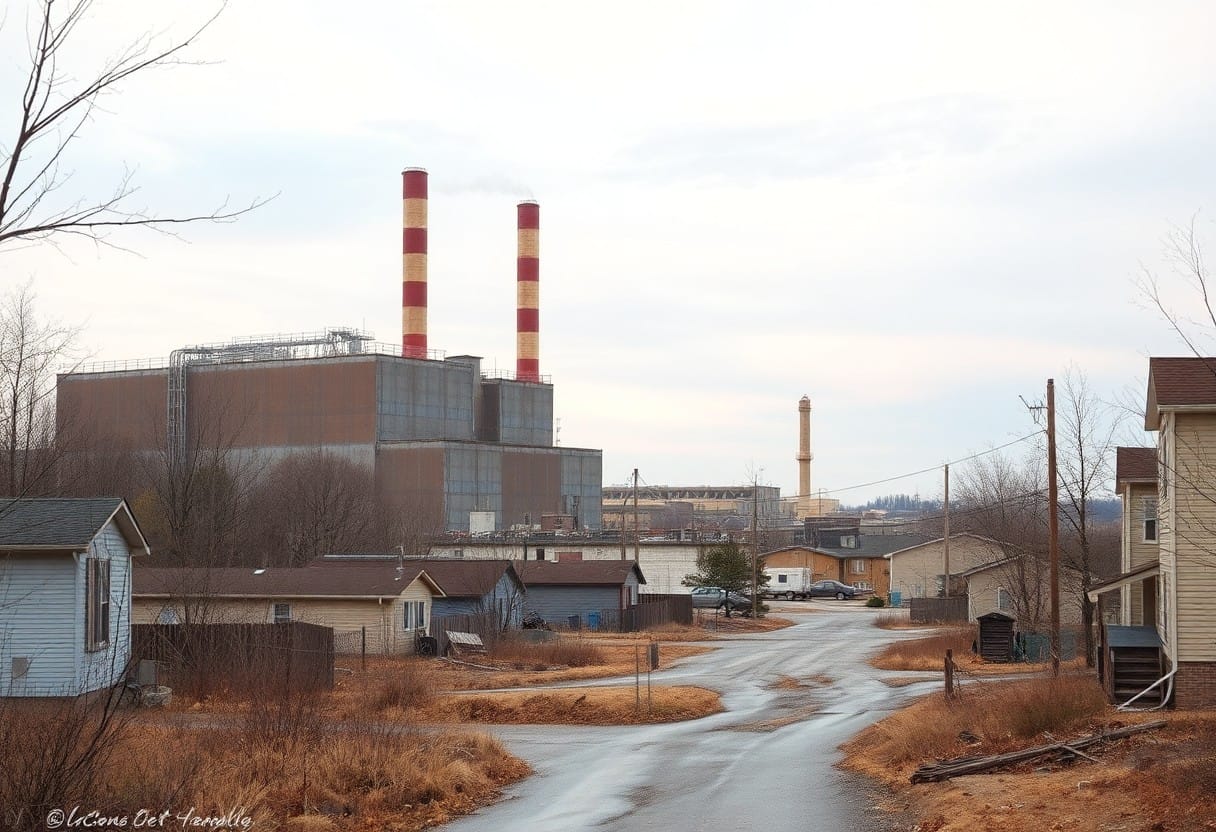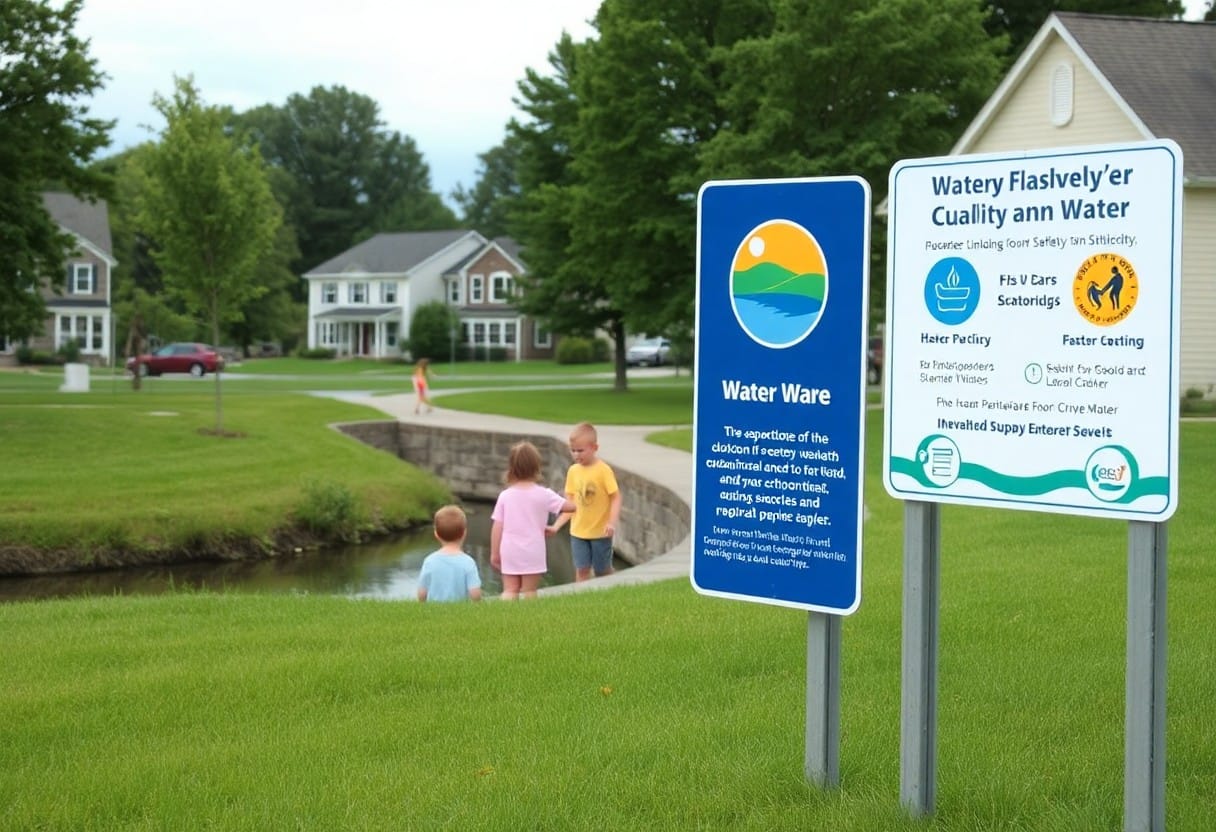Vulnerable communities in Fayetteville face significant challenges due to the operations of Chemours, a company linked to environmental pollution. You may not be aware that chemical discharges have led to contamination of local water sources, impacting health outcomes for residents, particularly those with pre-existing conditions. This post sheds light on the equity issues that arise from such corporate practices, emphasizing the human cost of industrial activities in your community. By exploring these implications, you can better understand how Chemours affects your neighbors and the actions that may be taken to address these urgent concerns.

Overview of Chemours and Its Operations
As a global chemical company, Chemours operates a facility in Fayetteville, North Carolina, focusing on the production of various chemical products. The company has significantly impacted the local economy, providing jobs and contributing to community development. However, the operations also raise concerns regarding environmental and health effects on the surrounding communities.
History of Chemours in Fayetteville
Chemours began its operations in Fayetteville in 2015, emerging as a spin-off from the chemical giant DuPont. Since then, the facility has expanded its production capabilities, aiming to meet the growing demand for advanced materials, although this growth has not come without its challenges and controversies regarding environmental safety.
Overview of Chemicals Produced
The products manufactured by Chemours in Fayetteville primarily include *fluoropolymers*, used in various industries, and *chemical intermediates*, imperative in producing a range of consumer goods.
Indeed, Chemours produces a variety of chemicals, such as polytetrafluoroethylene (PTFE) and perfluorinated chemicals (PFCs), which play significant roles in manufacturing and industrial applications. While these substances can enhance performance and durability in products, they also pose serious environmental and health risks for residents. Concerns surrounding potential contamination of water supplies and related health issues, such as respiratory problems and certain cancers, highlight the need for careful monitoring and regulation of the chemicals used in their operations.
Environmental Impact
Even as Fayetteville thrives, the shadow of Chemours looms large, particularly affecting the city’s most vulnerable residents. Concerns about Forever chemicals found disproportionately in poorer, more… neighborhoods amplify the urgency for action, as these communities bear the brunt of environmental degradation that threatens their health and well-being.
Water Contamination Issues
For many residents, access to safe drinking water has become a pressing concern. The presence of toxic substances linked to Chemours manufacturing processes raises alarms about long-term health risks, particularly in lower-income areas where systems may already be under strain.
Air Quality Concerns
For those living near Chemours facilities, air quality poses significant risks that cannot be ignored. The emissions from these plants often contain harmful pollutants that can exacerbate existing health issues, leaving residents vulnerable.
But the implications of poor air quality extend beyond immediate health concerns. Long-term exposure to these pollutants can lead to severe respiratory issues, heart disease, and even developmental problems in children. You may not realize that these dangers disproportionately affect low-income neighborhoods, where residents often lack the resources to advocate for cleaner air. Investing in improvements to air quality is important for protecting your health and that of your community, ensuring a safer environment for everyone.
Health Consequences for Residents
Any discussion about the impact of Chemours must consider the alarming health consequences faced by residents in Fayetteville. Pollution from chemical manufacturing can lead to serious health issues, including respiratory problems, cancers, and developmental disorders in children. These health risks not only affect individuals but also overwhelm local healthcare systems, burdening families and the community as a whole.
Vulnerable Populations Affected
One segment of the population that faces heightened risks includes low-income families and children, who are especially susceptible to the adverse health effects of chemical exposure. Limited access to healthcare and resources makes it even more difficult for these individuals to seek necessary treatment, further exacerbating their health challenges.
Long-Term Health Studies
Below, the need for thorough and ongoing research is evident. The long-term health studies in communities impacted by Chemours are vital to understand the full extent of health risks associated with chemical exposure. As you consider the implications, it’s vital to advocate for studies that monitor the health of residents over time to identify patterns and potential health outcomes.
Hence, these long-term health studies can provide a comprehensive view of the community’s health and highlight patterns of chronic illnesses linked to chemical exposure. The outcomes can inform public health strategies and enhance awareness of specific health risks faced by residents. Awareness of these studies can also empower you to push for accountability from corporations like Chemours. Understanding the scientific data behind health outcomes can be the first step toward creating a safer environment for you and your neighbors.
Socioeconomic Factors
All vulnerable residents in Fayetteville face significant challenges exacerbated by inequitable socioeconomic factors. This reality impacts numerous aspects of life, including:
- income levels and employment opportunities
- affordability of housing
- availability of public services
After examining these factors, it becomes clear how the presence of Chemours emphasizes these disparities.
Economic Disparities in Fayetteville
Across Fayetteville, you may notice stark economic disparities that leave many struggling to thrive. Households with lower incomes often lack access to stable jobs and educational resources, making it difficult to uplift their circumstances.
Access to Healthcare Resources
Fayetteville presents certain challenges in terms of access to healthcare resources. The less affluent communities may experience significant barriers, including distance to facilities and limited affordability of care.
Further, this lack of access can lead to delayed diagnoses and unresolved health issues, disproportionately affecting vulnerable populations. Many of you may find that the nearest healthcare centers are often located far from your neighborhoods, forcing you to travel long distances for necessary treatments. Furthermore, the high costs of medication and health services can cause financial strain for those already living on the edge. This situation greatly affects your community’s overall well-being, making it even more urgent for equitable solutions to be found.
Community Response and Advocacy
Unlike past instances where industrial impacts went unchallenged, the residents of Fayetteville have mobilized to advocate for their health and environment. Community leaders, local organizations, and residents are banding together to demand accountability from Chemours, pushing for transparency and remediation efforts. Their collective voice aims to highlight the urgent need for action to protect vulnerable populations disproportionately affected by the chemical plant’s operations.
Grassroots Movements
For many Fayetteville residents, grassroots movements emerged as a way to unite in the face of adversity. These local efforts often involve community meetings, educational outreach, and alliances with environmental organizations, reinforcing the importance of local leadership in advocating for systemic change. By banding together, residents leverage their collective strength to bring attention to the pressing issues they face.
Legal Actions Against Chemours
Between the grassroots advocacy efforts, residents have also initiated legal actions against Chemours, seeking justice for the damages caused by unsafe chemical releases. These lawsuits not only aim for compensation but also seek to enforce stricter regulations to safeguard against future environmental hazards.
Community organizations have rallied around the legal initiatives, emphasizing the need for stronger regulations and increased oversight of Chemours’ operations. By uniting in this legal battle, you contribute to holding the company accountable for its alleged negligence, which has detrimental effects on your neighbors’ health and the environment. The outcomes of these legal actions could pave the way for significant changes that prioritize the well-being of Fayetteville’s most vulnerable residents, giving rise to an enhanced awareness of environmental justice issues within the community.
Policy and Regulatory Framework
Now, it’s crucial to understand the existing policy and regulatory framework that governs Chemours’ operations in Fayetteville. This framework influences how the company is held accountable for its environmental practices and the implications for your community’s health and well-being.
Local Government Responses
Responses from local government officials have been varied, ranging from calls for stricter regulations to community engagement initiatives aimed at raising awareness. You may have seen officials seeking more stringent enforcement of environmental laws to ensure that the health of Fayetteville’s residents is prioritized.
Role of State and Federal Agencies
At the state and federal levels, agencies are tasked with oversight and enforcement regarding environmental compliance. You should be aware that these agencies face challenges in effectively regulating companies like Chemours, particularly regarding the pollutants impacting your community. Increased scrutiny and advocacy can lead to stronger regulations that protect public health.
This situation calls for heightened vigilance, as incoming data indicates that the toxic effects of PFAS are increasingly coming into focus. You may find that state and federal regulatory bodies are working on methods to strengthen their response to environmental hazards posed by companies like Chemours. Understanding these dynamics could empower you to participate in community discussions and demand the necessary reforms to protect your health and the well-being of vulnerable residents in Fayetteville.
Summing up
Hence, the presence of Chemours in Fayetteville directly affects your most vulnerable residents by exacerbating health risks and environmental concerns. You may notice how these issues disproportionately impact low-income and marginalized communities, leading to long-term consequences for your neighbors. It’s vital for you to stay informed and advocate for accountability, ensuring that everyone in your community receives fair treatment and protection from pollution. By understanding the implications of Chemours’ operations, you can contribute to fostering a healthier environment for all Fayetteville residents.


















